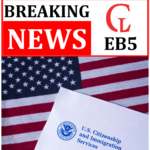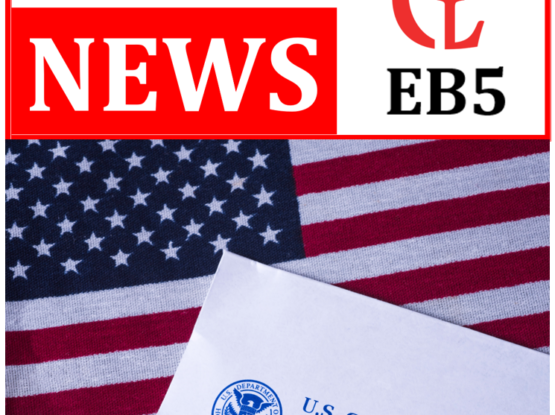On March 15, 2022, the EB-5 Reform and Integrity Act of 2022 (the “RIA”) renewed the EB-5 Regional Center Program following a lapse in its statutory authorization and set forth new policies which govern how regional centers operate. The U.S. Citizenship and Immigration Services (“USCIS”) interpreted the RIA as a deauthorization of all existing regional centers. As a result of this interpretation, various regional centers filed a lawsuit against USCIS challenging this decision to deauthorize previously approved regional centers in the US District Court for the Northern District of California (the “Litigation”). As we previously informed, on June 24, 2022, the Court ordered a preliminary injunction, concluding that USCIS’s decision to deauthorize regional centers “was almost certainly legal error.” At such time, the Court enjoined USCIS “from treating as deauthorized the previously designated regional centers based on its almost certainly erroneous interpretation of the [RIA].”
On August 24, 2022, the parties to the Litigation reached a settlement agreement with USCIS which reauthorized previously approved regional centers and changed the previous position adopted by USCIS (the “Settlement Agreement”). The Settlement Agreement included various key stipulations, including the following:
- Previously authorized regional centers will continue to be authorized;
- Previously authorized regional centers must file a Form I-956 no later than December 29, 2022, along with the required filing fee in order to remain authorized;
- Previously authorized regional centers are not required to wait for approval of their Form I-956 prior to filing and receiving any adjudications from USCIS;
- Previously authorized regional centers may immediately file project applications through Form I-956-F;
- If, after filing a form I-956F, a regional center does not receive a formal receipt notice within ten (10) calendar days of delivery to USCIS, investors may provide other forms of proof of the I-956F filing in their I-526E petition; and
- The failure of a previously authorized regional center to file a Form I-956 application or amendment by December 29, 2022 will not by itself be a basis for USCIS to deny an investor’s I-526 or I-829 petition. Nonetheless, the regional center may no longer engage in any future activities under the RIA.
In addition, the Settlement Agreement provides that previously approved regional centers sponsoring new projects or new investors under the RIA shall comply with all the requirements of the RIA. USCIS committed to amend any forms affected by the terms of the Settlement Agreement by December 1, 2022. Finally, for at least two years from the effective date of the Settlement Agreement, representatives of the parties to the Settlement Agreement shall meet quarterly to discuss the implementation and matters related to the implementation of the Settlement Agreement.
We expect that this Settlement Agreement will finally provide much needed stability to the EB-5 Program. It is important for regional centers to take the necessary measures to ensure compliance with the RIA and the terms of the Settlement Agreement within the time frames stated therein, as failure to do so may result in deauthorization and/or fines.
Our EB-5 Services and Compliance Practice Group members are ready to assist you to ensure proper compliance with the RIA and the Settlement Agreement.
To get in touch with our team to learn more about the EB-5 Program overall, visit our website: https://carrasquillolaw.com/contact-us/.




